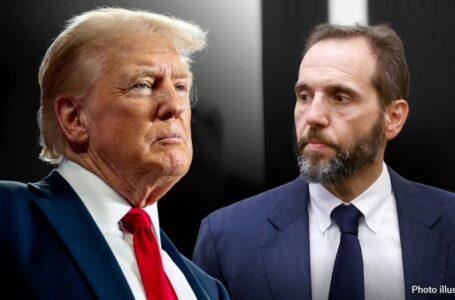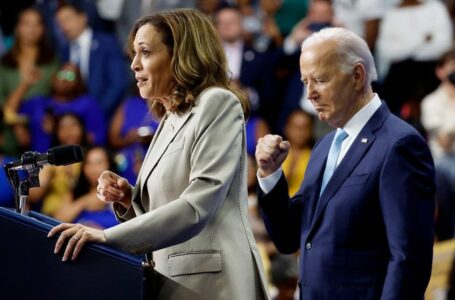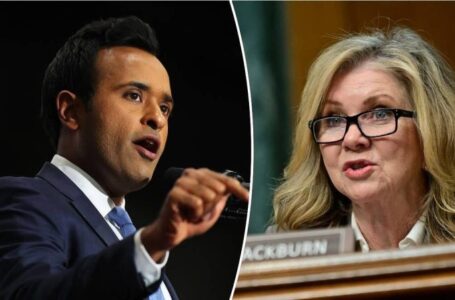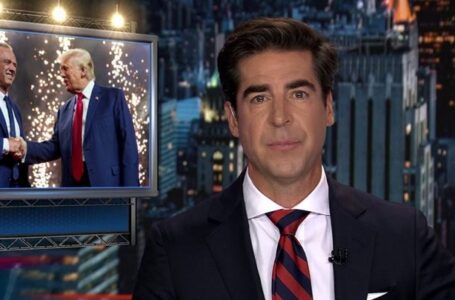Special Counsel Smith seeks to dismiss Jan. 6 charges against Trump
Jan. 6 and Trump’s subversion took center stage. Will that sway voters?
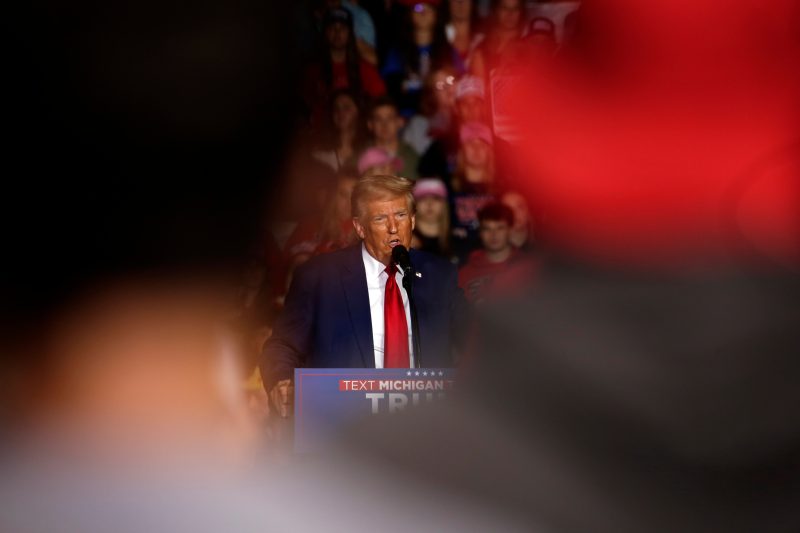

Nobody planned it this way, but the Jan. 6, 2021, attack on the U.S. Capitol, former president Donald Trump’s role in attempting to subvert the 2020 election and the issue of protecting democracy emerged as the theme of the presidential campaign last week.
That no one planned it is apparent from the coincidence of events that put the focus back on the issue. How long it remains at the center of the political dialogue — and whether it will influence many voters in the final month of the campaign — are questions yet to be answered. But the issue is what makes 2024 different from other presidential elections and also why so many voters see the stakes as so consequential.
The Jan. 6 attack, and Trump’s false claims of a stolen election that inspired it, first emerged during Tuesday’s vice-presidential debate between Democrat Tim Walz and Republican JD Vance. It was the last question raised by moderators Norah O’Donnell and Margaret Brennan of CBS News. Neither of the candidates had made much of it until that moment.
The two candidates spoke past one another as they talked about it. But then Walz, the governor of Minnesota, asked a direct question of Vance, a senator from Ohio, and Vance muffed it badly. “Did he lose the 2020 election?” Walz asked Vance, referring to Trump. “Tim, I’m focused on the future,” Vance replied. To which Walz responded, “That is a damning non-answer.”
In a debate that was otherwise largely free of fireworks and generally cordial, that exchange went viral. Public reaction to the debate said it was essentially a draw. Pundit assessment as the days went on called Vance the winner and said Walz had stumbled at key moments. But it was the Jan. 6 moment that had legs, and the Harris campaign seized on it and turned it into an ad.
An explosive filing by special counsel Jack Smith, which a federal judge ordered be unsealed on Wednesday, served to amplify the issue. In the 165-page filing in the case charging Trump with conspiring to subvert the 2020 election, Smith and his team laid out damning new information about Trump’s actions.
Among the details that grabbed the most attention was the allegation that when he was told that then-Vice President Mike Pence, who was in the Capitol at the time, was being rushed to a secure location as rioters outside were chanting “Hang Mike Pence,” Trump said “So what?”
The filing includes several references in which Trump dismissed the conclusion of his advisers that claims of a stolen election were inaccurate, that the evidence of such would not hold up in the courts. “It doesn’t matter if you won or lost the election,” Trump is alleged to have said, according to the filing. “You still have to fight like hell.”
Trump’s response to the filing was to accuse Smith of interfering in the presidential election just weeks before Election Day. What that conveniently overlooks is that Trump’s legal strategy has been to create delay after delay to avoid a trial before the election.
Smith’s filing was a response to the Supreme Court decision saying Trump has immunity from prosecution when acting in his official capacity. The special counsel sought to show that much of what Trump did was done not as president but as a political candidate.
It’s still unlikely any trial will begin before the election. In that way, Trump has gamed the system to his advantage and now must await the verdict of the voters before knowing where he stands in terms of his future legal jeopardy. That too is something for voters to weigh in the coming days.
Vice President Kamala Harris has not made the protection of democracy a principal focus of her candidacy. In her speech at the Democratic National Convention in Chicago, she called Trump an unserious person whose reelection would have serious consequences and recounted what he had done to overturn the 2020 election. But her main messages have been to introduce herself to voters who don’t know her well, to try to reassure them that she is ready to be president, and to lay out policies for the economy and immigration to counter the main attacks coming from the Trump campaign.
Harris’s approach is a departure from that of President Joe Biden when he was a candidate. He made threats to democracy the core argument for his reelection. That was the message his advisers talked about as he began this year. It was a theme included in his State of the Union address as he linked threats to democracy at home to similar challenges abroad. It was part of his message in his pass-the-torch-to-Harris speech at the Democratic convention.
But on Thursday, Harris’s campaign was all about the threat Trump poses to democracy, delivered most emphatically by former Republican congresswoman Liz Cheney in a joint rally with Harris in Ripon, Wis., the birthplace of the Republican Party.
Few have been more vociferous in arguing that Trump should never be allowed back in the White House than Cheney. She sacrificed her political career in the Republican Party to sound the alarm. Both she and her father, former vice president Dick Cheney, two staunch conservatives, crossed party lines to endorse Harris. Thursday’s rally in Wisconsin was the first time she and Harris have appeared together.
“Donald Trump was willing to sacrifice our Capitol, to allow law enforcement officers to be beaten and brutalized in his name, and to violate the law and the Constitution in order to seize power for himself,” Cheney said. “I don’t care if you are a Democrat or a Republican or an independent. That is depravity, and we must never become numb to it.”
That is the question for now, whether voters are numb to what happened on Jan. 6 and to what Trump did and continues to do to deny that Biden was legitimately elected. The issue of democracy ranks high on the list of voters’ concerns, according to a variety of polls, though supporters of Trump and supporters of Harris have starkly different views on the nature of those threats. Trump has made it a cause of his campaign to rail against what he calls a weaponized justice system, which many of his loyalists fervently believe. Harris, Biden and other Democrats see Trump and his authoritarian impulses and desire for revenge as the true threat.
Most minds are made up on this issue, which is why all of Trump’s legal entanglements, his conviction in the hush money and business records falsification case, and the possibility of trials in the future have not moved the polls. For many voters, other issues are of paramount importance, as they are in every election: their financial well-being and security, their perceptions of the overall state of the country, their hunger for a better life for their children and which candidate might deliver it. Harris and Trump will be fighting over those issues during the final month of the campaign.
But this is a unique election and has been ever since Trump refused to accept that he lost in 2020 and falsely claimed that the vote was rigged, encouraged the mob that attacked the Capitol and then set out to reclaim the presidency on the foundation of a lie. Trump has yet to say that he will accept the results if he loses in November, and the prospect of challenges to results this year by Trump and his allies, should Harris win, are real. The happenstance of events of the last week brought back into focus one reason this election matters more than most.

